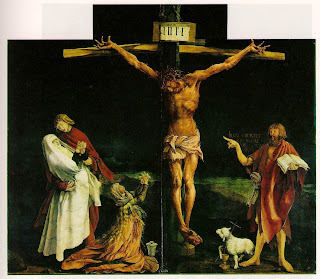

At the end of Acts 15, we begin the second missionary journey of Paul. Paul begins by encouraging the churches they started on the first journey and there will be some twists and turns along the way. The first twist happens right at the beginning in chapter 15:36-41. Paul refuses to take John Mark (the writer of the gospel of Mark and a youth at the time of Jesus' ministry), because he deserted at Pamphylia. Barnabas' name means "encouragement," and he strongly asked for a second chance for Mark. The result is a split. Barnabas and Mark go together toward Cyprus and Paul and Silas go westward. A new and young partner in ministry joins Paul and Silas, one who would become a son in the ministry to Paul, named Timothy. Where is Asia?
In those days, the Asia here is Asia Minor or present day, Turkey: home of Galatia, Ephesus and Colosse. A second twist happens when Paul has a vision of a man from Macedonia crying out to him for help. Paul sees that as guidance from the Lord. Phillipi, Thessalonica and Corinth will be major places where the church is planted.
Philippi becomes a major home basic of ministry for Paul.
The conversion of the Philippian jailer is interesting for several reasons. First, we see once again the power of the praying church. Second, we have here a formula for coming to faith in Christ, "Believe in the Lord Jesus Christ and you shall be saved." Third, we have one the five household baptisms in the Bible. With the baptism of a household, were the children of age, or is this an early example of baptizing before people came to faith? Strong arguments can be offered on both sides.
As in most places, the first place Paul goes is to the synagogue to teach about Christ. The letter to the Romans tells of Paul's great passion to convert the Jews.
But usually what happened was there would be both a few converts and persecution. Paul and Silas go on to Berea, where they encounter more persecution that had been stirred up by the Thessalonians. Silas and Timothy remain, but Paul is sent off to Athens.
For our 15th anniversary, Tina and I went on a once-in-a-lifetime cruise to Turkey and the Greek Isles. We finished the trip in Athens and I had the privilige of going up on Mars Hill. Tina stayed below for the trip us was a little treacherous and the way back down was very slick because of the wear over two millenia. I notice from the above picture that they have improved the accessibility. The seventeenth chapter is the sermon that he presented to the Aereopagus, the ideas people of his day. This sermon is central to both my own journey of faith and my call to ministry. We present "the unknown God" to our spiritually and relationally hungry world, the one "in whom we live and move and have our being." How Christian leaders need to get out of our self-imposed isolation and get back into the arenas of philosophy, law, business, medicine, entertainment, media, and begin the hard work of giving our world a better spiritual-ethical center. The sermon at Mars Hill would have been considered a flop by our standards, mainly because the people couldn't handle the idea of resurrection.
Chapter 18 tells of Paul's ministry in Corinth. We tend to think that Paul only preached, but there is evidence that for survival, he exercised his secular position of tent-making. Priscilla and Acquilla, also tent makers, develop into major Christian leaders. Paul ends up staying in Corinth for 18 months. God tells Paul that He has many people in that city. Part of that is due to the ministry of Apollos, who had a very strong following. The church in Corinth has a very divisive character around Apollos, Paul and some who chose to be non-aligned. The American Church has quite often been a church that has grown by division.
On the same trip with Tina as Mars Hill, we went to Ephesus (the eventual home of Mary and John)and saw the ruins of the affluent and strong community there. Notice the discussion in chapter 19 on the Holy Spirit. Here is the pattern I see most often in the church about the Holy Spirit. So Paul explains to them who the Holy Spirit is and many receive the infilling. Unfortunately, that is followed by a major riot. It's what happens when you confront the "gods" of a given people. What are some of the gods of our day that the church needs to take on?
Chapter 20 describes the goodbyes of Paul to the Macedonian and Asian people. It's been a long three years. He will now head back to Jerusalem, where things have become a whole lot more resistant.














